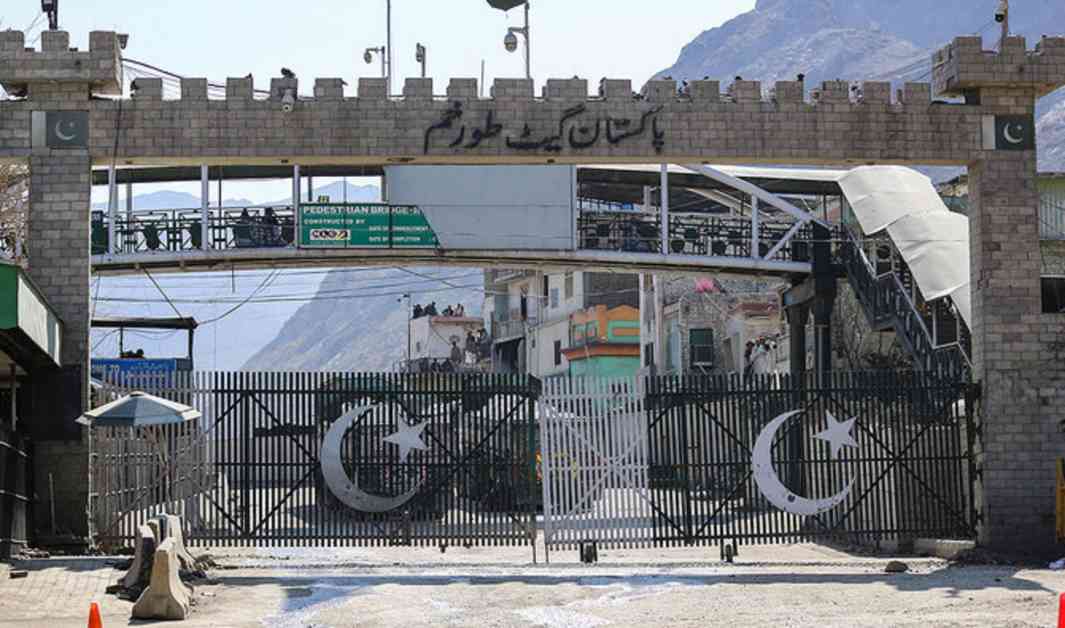Pakistan has taken a decisive step by closing the Torkham border crossing with Afghanistan due to the construction of trenches and other developments initiated by Afghan Taliban authorities. This move, as reported by a senior Pakistani police official, has halted all pedestrian and trade activities between the two neighboring countries, although no violent incidents have been documented.
Naheed Khan, a distinguished police official in Pakistan’s Khyber district, confirmed the closure of the Torkham crossing, indicating that the shutdown took effect late Friday night. The closure applies to both pedestrians and heavy vehicles since midnight on February 21, with no reports of gunfire from either side. This sudden development has prompted residents of Bacha Mina, a village near the border on the Pakistani side, to evacuate the area as a preventive measure. Additionally, some loaded trucks have turned back to Jamrud Bazaar, following Khan’s statement. However, there has been no immediate response from Afghan authorities regarding this border closure.
The decision to close the Torkham crossing reflects the escalating tensions between Pakistan and Afghanistan, exacerbated by a recent surge in militant attacks within Pakistan. Islamabad has repeatedly accused Kabul of providing refuge to militant groups that orchestrate cross-border assaults, an allegation that Afghan officials vehemently refute. These accusations have fueled a series of border disputes, resulting in the temporary closure of vital crossings and severely disrupting trade and movement between the two nations.
Rising Border Tensions and Disputes
The closure of the Torkham border crossing marks another chapter in the ongoing saga of discord between Pakistan and Afghanistan, fueled by allegations of cross-border militancy and retaliatory measures. The recent surge in militant attacks within Pakistan has heightened Islamabad’s concerns, leading to a crackdown on suspected militant hideouts near the Afghan border. These security actions have further strained relations between the two countries, resulting in a cycle of accusations and counter-accusations that have culminated in the current closure of the Torkham crossing.
Impact on Trade and Regional Stability
The closure of key border crossings, such as Torkham, has far-reaching implications for regional trade and stability, as it disrupts the flow of goods and people between Pakistan and Afghanistan. The suspension of trade activities and movement across the border not only hampers economic exchanges but also exacerbates existing tensions, creating a volatile environment that could potentially escalate into a larger conflict. The lack of immediate resolution to this border closure underscores the deep-rooted issues between the two nations and the challenges in finding a peaceful path forward.
As tensions persist and the border remains closed, the need for diplomatic dialogue and mutual understanding becomes increasingly crucial to prevent further escalation and foster stability in the region. The closure of the Torkham border crossing serves as a stark reminder of the intricate geopolitical dynamics at play in South Asia and the pressing need for cooperation to address shared security concerns and promote lasting peace in the region.









